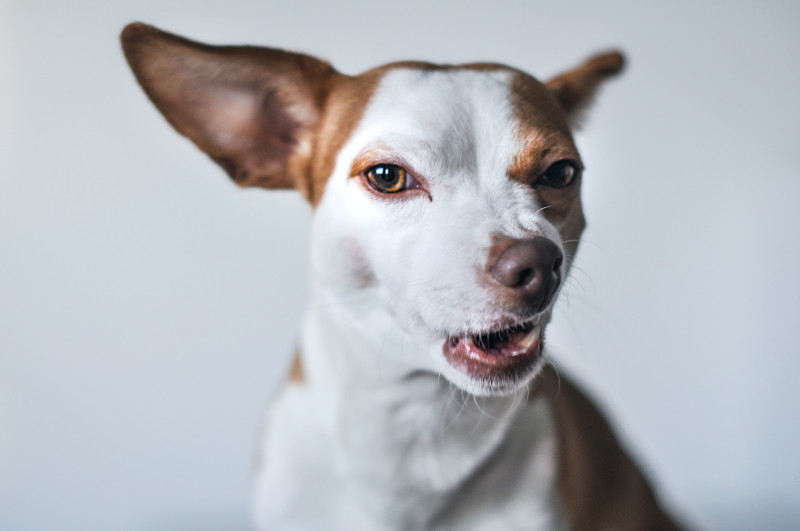Our pets’ bowel movements tell us a lot about their current state of health. While this is far from the most glamorous of topics, it is certainly one of considerable importance. From colour, to odour, to consistency, changes in your pet’s stool may indicate an underlying issue that warrants further attention.
Diarrhea is the most common digestive ailment among canines, spanning all ages, breeds, and lifestyles. While it can vary in frequency and duration, most of the time it is nothing to be overly concerned about. Oftentimes, loose stools could be due to something as simple as sneaking a spoiled piece of food from the garbage bin. However, in rarer cases, diarrhea can be a sign of a more serious medical condition.
From my experience, the most common cause of diarrhea in canines is closely connected to over-consumption. We live in a society largely based on consumption, and considering more than half of North American dogs are considered obese – not just overweight, obese – it should come as no surprise to hear that the majority of domesticated dogs are over-consuming to one degree or another.
From their dog food, to training treats, to people food and table scraps, and more, crossing a dog’s individual digestive threshold happens faster than you may think. In many cases, a pet owner mistakenly self-diagnoses their dog as having a sensitive digestive system because of diarrhea or inconsistent stools. However, after making the correct reduction to the dog’s portions, the stool issues often improve immediately.
Other common reasons for diarrhea include eating meals too quickly, starting a new diet without transitioning adequately, food intolerances and sensitivities, or eating food that has gone bad could all be to blame. Take a look at the treats your dog eats as well, not just their regular meals. It is important to keep in mind that food sensitivities can develop at any time throughout your dog’s life, even if their diet hasn’t changed.
If you have ruled out food consumption as the culprit, and your dog is still having stool problems, check around your home thoroughly to ensure they do not have access to a toxic substance, such as a cleaning product or a harmful plant. Additionally, many medications can cause stomach upset, resulting in stool problems.
Another generally known cause of diarrhea in dogs stems from infections from parasites, such as roundworm or giardia, or viruses such as parvovirus or canine coronavirus. Bacterial infections like salmonella are also somewhat common. Keep an eye on your dog’s behaviour and look for additional symptoms such as lack of appetite, lethargy, vomiting, and blood in the stool.
Less commonly, diarrhea can be caused by serious illnesses such as kidney or liver disease, which is why early detection is critical in treating what may be a life-threatening condition. If there is any concern in this regard, the sooner your pooch is examined by a veterinarian the better.
Stress and anxiety also play a major role in our dog’s digestion. Dogs under heightened levels of tension may have diarrhea as stress can engage our dog’s fight or flight instincts. Additionally, swallowing foreign objects can cause intestinal blockages, resulting in diarrhea (among other things) as well.
In addition to diarrhea, if your dog shows any added ‘red flag’ symptoms, like lethargy, blood in the stool, vomiting, or if their diarrhea lasts for more than two or three days, contact your veterinarian immediately for further assistance.
To identify what is causing your dog’s digestive issues may take some experimentation, however following these steps will help expedite the process.
Providing your dog does not have an underlying medical issue, correcting diarrhea is a relatively simple process, however there are a few approaches you can take. Firstly, simplifying the diet as much as possible is key. This will help you narrow down the variables to better understand your dog’s digestive catalysts. Also, consider supplementing your dog’s diet with a good source of soluble fibre, like pumpkin, or psyllium. Soluble fibre acts like a sponge to help absorb excess water in the colon. There are many high quality digestive aids on the market to consider, too. These products often contain pre and probiotics, digestive enzymes, dietary fibre, and more.
While it may not be the classiest subject to discuss, there is no denying the importance of a healthy, balanced digestive system, for humans and pets alike. Often referred to as the second brain, there is still much we do not know about the gut’s role in our pet’s overall health and wellness, however scientists are now beginning to develop an understanding of the critical biological functions carried out by the digestive system.
Brandon Forder, known as The Pet Expert, is vice-president of Canadian Pet Connection, an industry leader in healthy pet lifestyles. Brandon is certified in pet nutrition, and has more than twenty-five years’ experience specializing in pet health and behaviour. He has written hundreds of informative pet-related articles for newspapers, magazines, radio, and the popular Ask the Pet Expert Blog. Brandon is highly skilled in pet problem solving, and enjoys teaching others about smart and responsible pet ownership. To learn more, visit www.CanadianPetConnection.ca.












